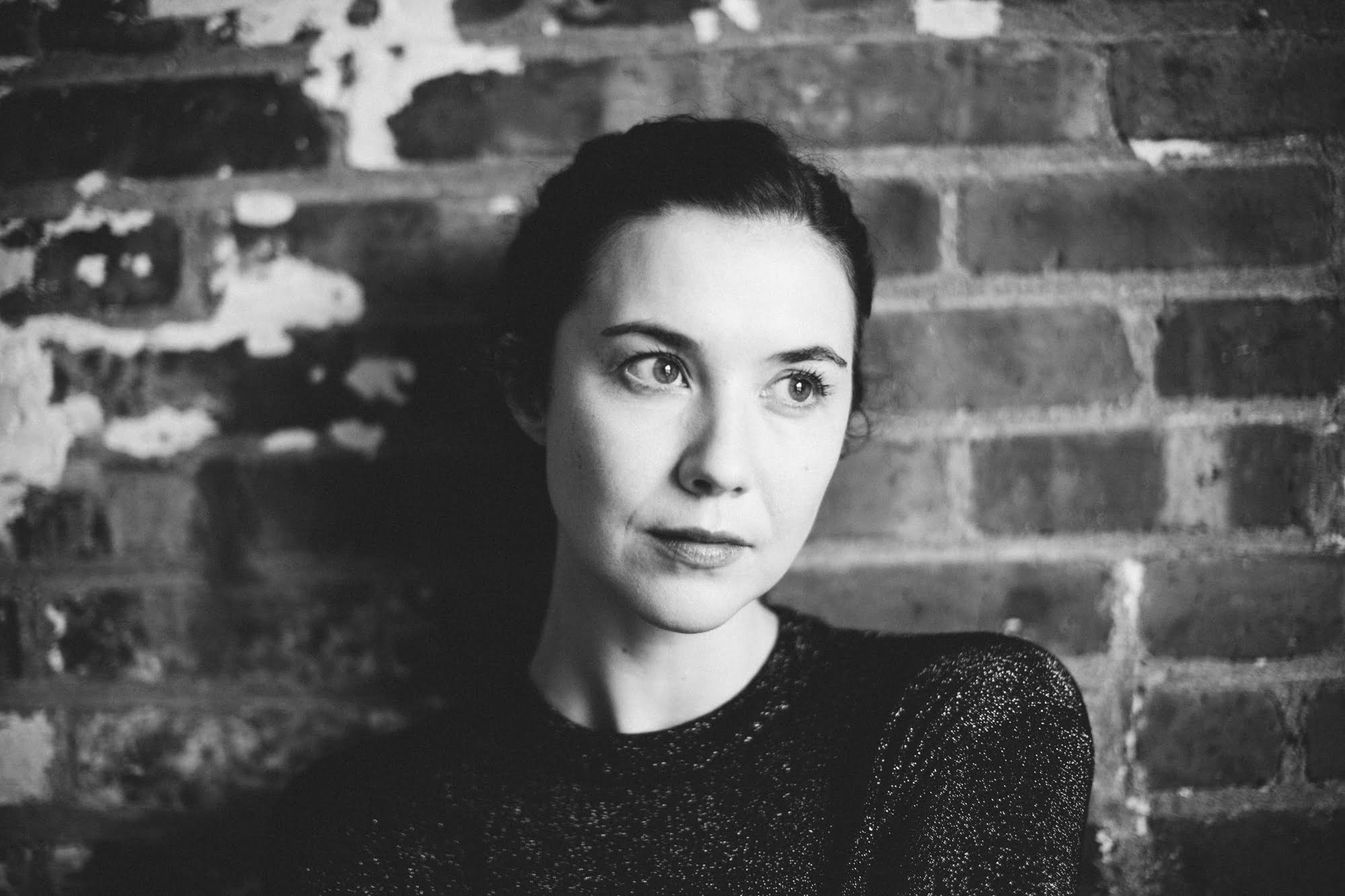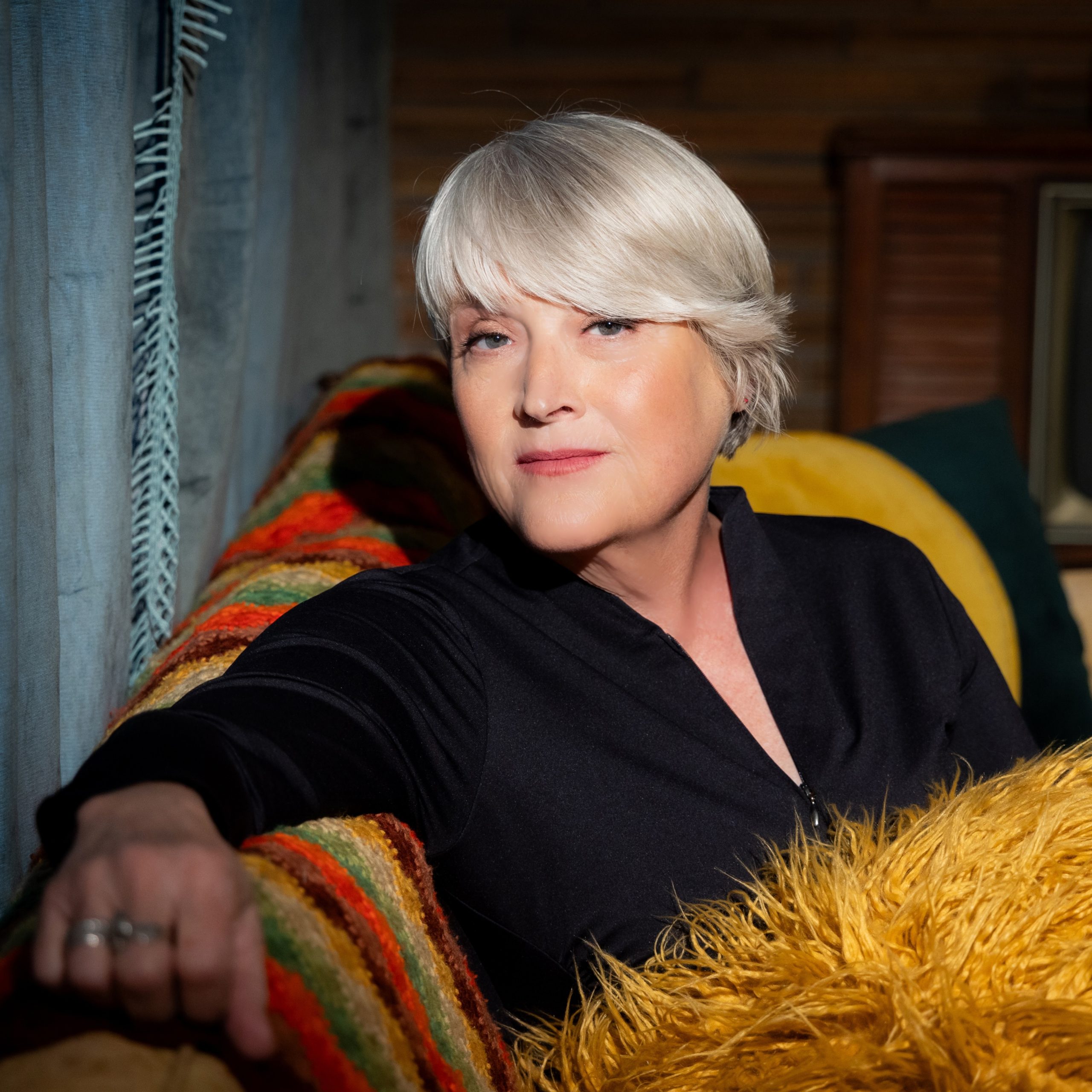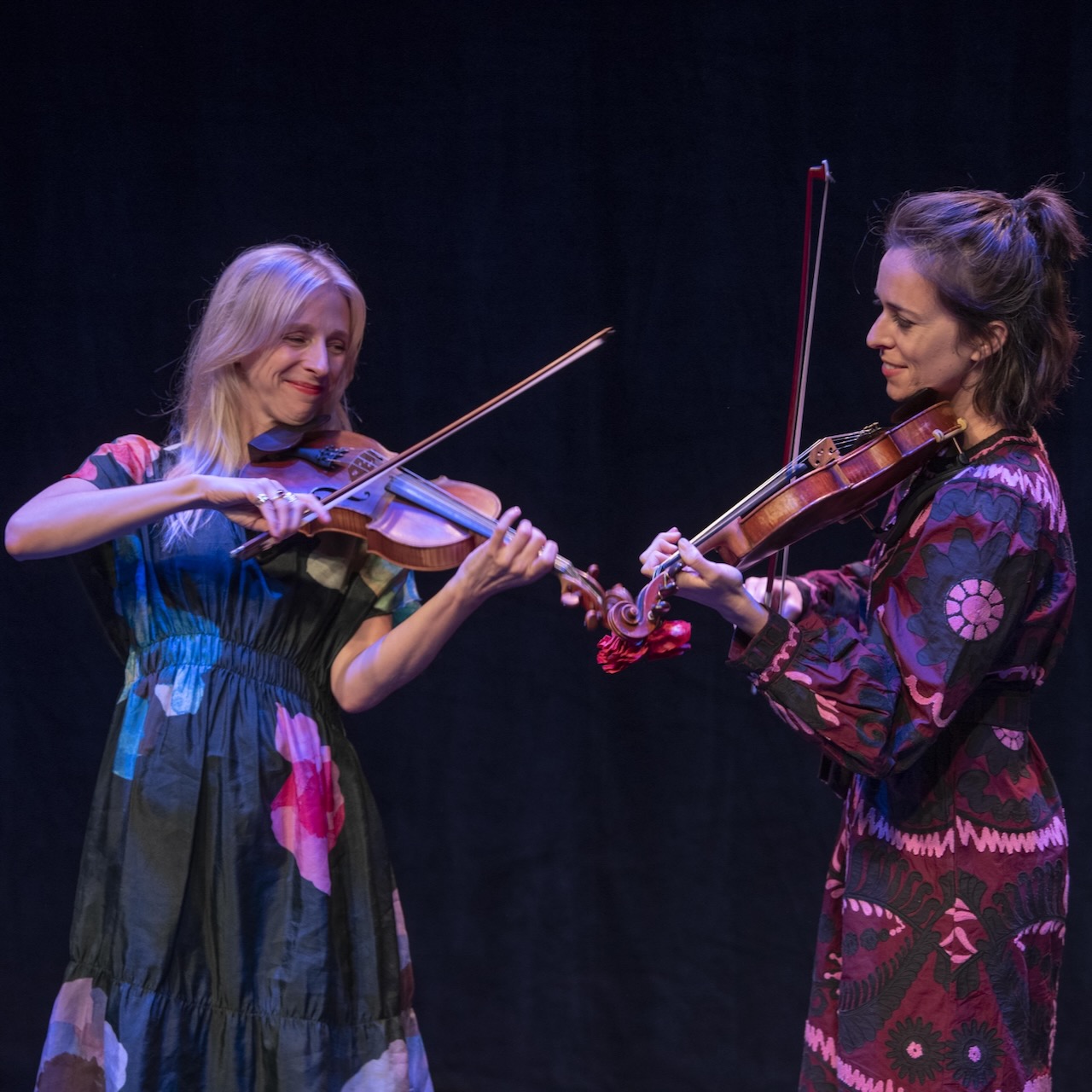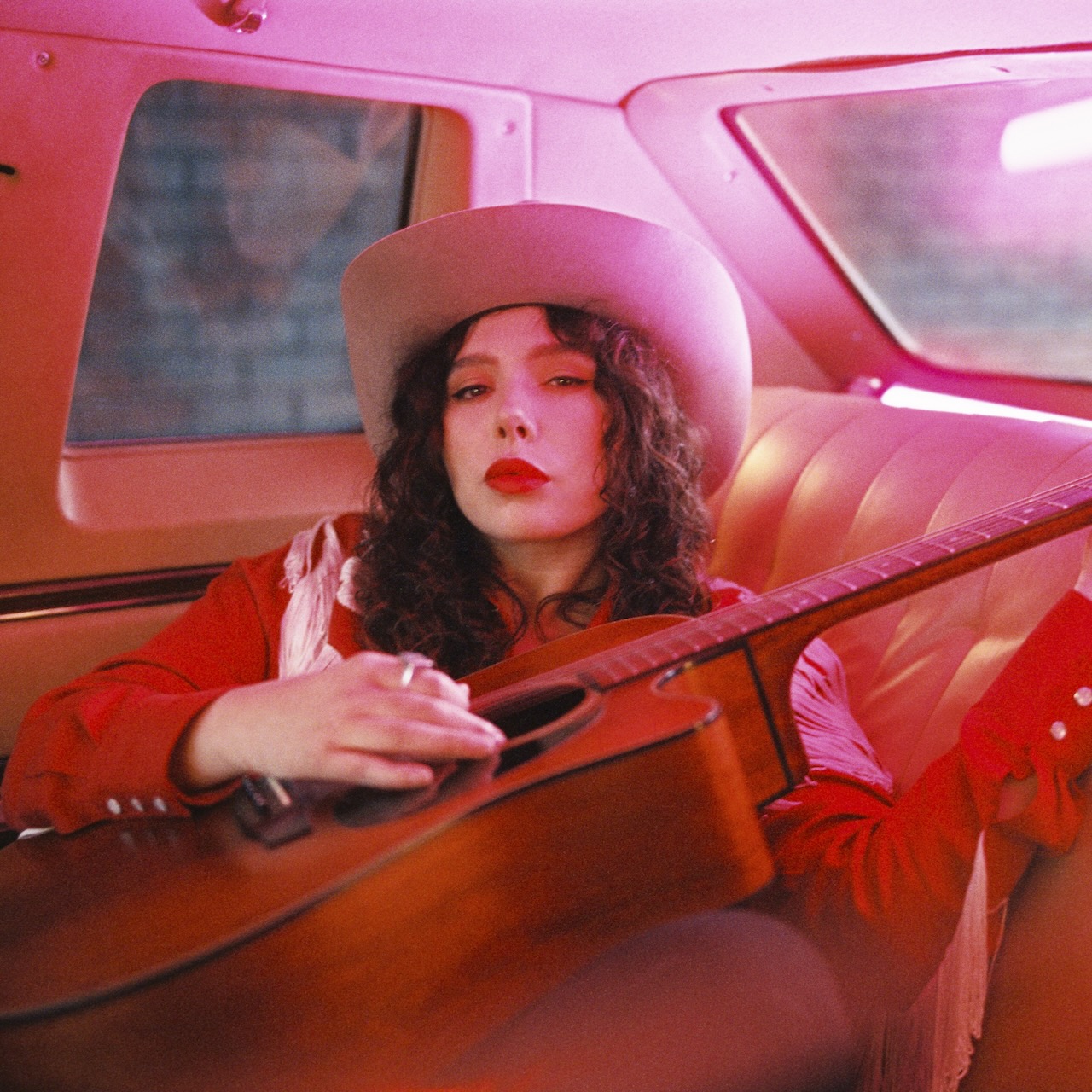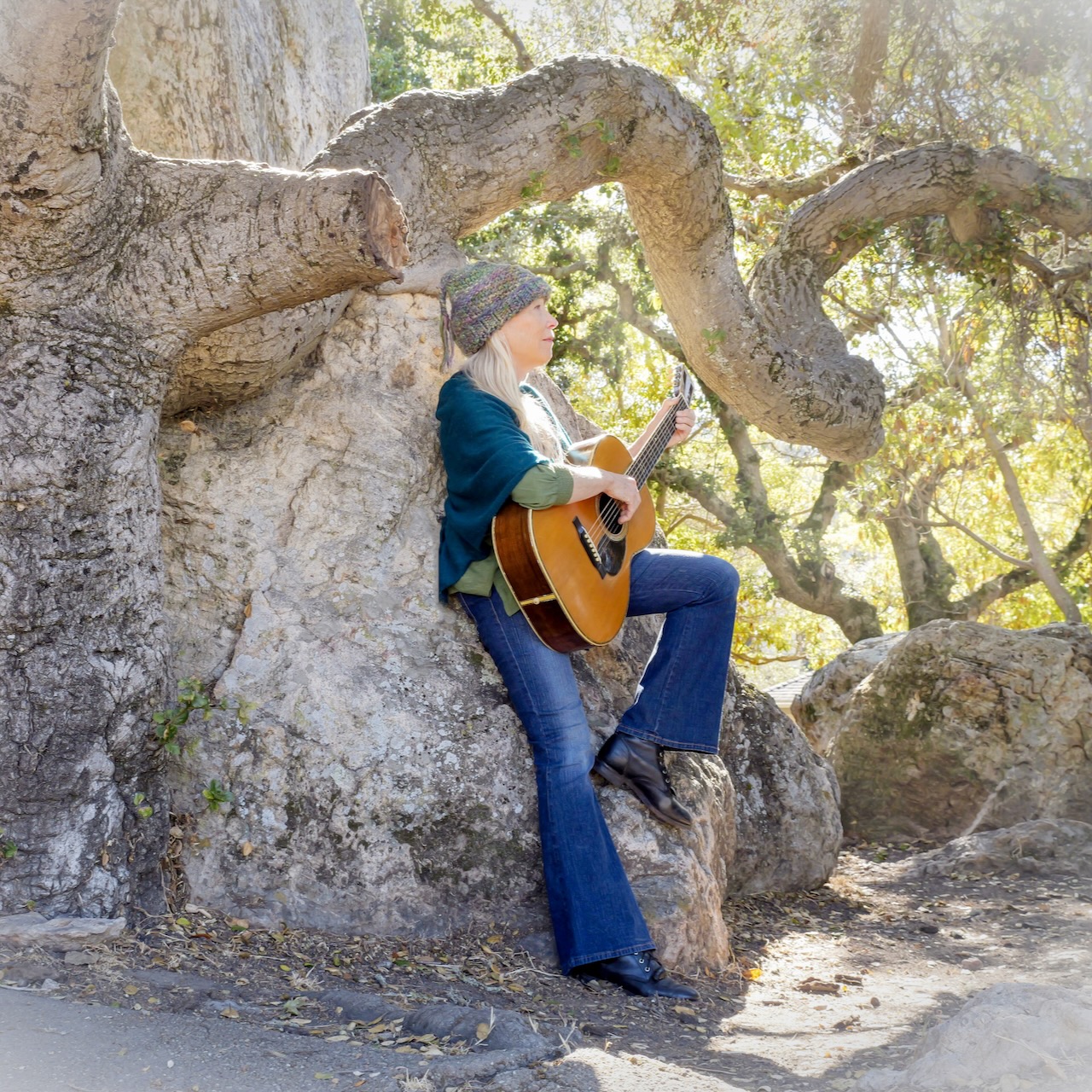Lisa Hannigan got her start on the stage with Damien Rice, providing vocals for 2002’s massively successful O and growing more confident in her voice and her words ever since. Hannigan’s 2008 debut, Sea Sew, was met with extensive acclaim and a slew of award nominations in her home country of Ireland, and its 2011 follow-up, Passenger, made for more compelling evidence that Hannigan’s haunting vocals find their best fit at center stage.
It’s been five years since Hannigan released any new music and, while she struggled with the writing process, she’s quick to interject that her latest work, the 11-song collection At Swim, isn’t that depressing, by the way. She’s right — one of the things that makes At Swim such a strong effort is its capacity to soar from stirring highs to paralyzing apathy and back again.
I read in an interview from a couple of years ago that you had a favorite song to play live — “Little Bird” — but that it was originally kind of a struggle for you to play in front of people. What makes any particular song difficult to play in the live setting, and how does it evolve for you over time?
I think some songs feel a little more raw, really. In the most basic sense, they feel a little more exposing or truthful — just bare. That song, when I first wrote it, I felt a bit exposed singing it. But then I kind of began to enjoy that feeling, in a way. [Laughs] I sort of enjoyed feeling the rawness of it. The heart of the song still conjures up the moment that it was written in. But it doesn’t feel quite as … it doesn’t feel quite as sunburnt. [Laughs]
What is it about that feeling that appeals to you?
When I say that I enjoy that feeling, I think that that song, in particular, for me, was a way into a slightly different approach to songwriting than I had done. I really felt the truthfulness to it. It was actually really freeing and really enjoyable, in a way, and I’ve tried to bring that into the songs on the new record — tried to express things in a bit more of a bare way. I don’t know if anyone would hear them in the way that I feel them when I’m singing. I would say there are a few songs on my new record — at least, I’ve only been playing a few recently — that give me that same feeling and that I just love to sing for people. “Prayer for the Dying” is one; “We the Drowned” is another. I tried to bring that sense of rawness to all the songs on the new record, to an extent.
These are really personal songs, but you worked with a new producer. Tell me about working with Aaron Dessner on this record.
Well, I had been having a bit of a hard time trying to write songs for this record. I finally got off tour from the second record, and I just kind of felt empty or something. I don’t know why, but I didn’t have the feeling that I usually have when I want to write songs. I was feeling a bit down about the whole situation. [Songwriting] is what I do, so when I don’t do it, I feel a bit confused about my purpose in the world. But then I got this email, completely out of the blue, from Aaron, saying just, "My name’s Aaron. I’m in a band called the National." [Laughs] Which I already knew. But it was just this really sweet email saying, "If you want to write together, or you need someone to produce your next record, or whatever — just if you want to get in touch, please do." So we started this lovely correspondence and became musical pen pals. He would send me all these beautiful pieces of music, and I would try to react to them melodically or lyrically or in any way. It was really fun, and it kind of brought back the fun of songwriting that I had so much squashed down with all of my trying so hard and being down about the whole she-bang. It was really a breath of fresh air in the whole slightly stale situation that I had found myself in.
One of the first songs that he sent that I found easy to write to was the song “Aura” on the record. He sent it and it was very fleshed out — this beautiful, rolling piano chord structure. It had this really beautiful feeling of oars and water. It had this calling sensation to it. I remember vividly: I was just folding the washing at home, and I always have my phone recording whatever humming I would be doing. For “Aura,” I just immediately started singing the melody as it ends up, really. It just felt so natural, and the words and everything felt very natural for that piece of music. Every once in a while with me and Aaron, we would have that situation — where it would just be very immediate and sudden, the connection. So that ends up being on the record and the heart of it being very similar to what we hit on initially. I had a sort of kinetic energy, to keep it whole. We kept it pretty much how it was.
It’s so interesting to hear you talk about this because, so often in the past, you’ve worked with other musicians as the outside collaborator coming in and contributing to their records.
In any situation, you always want to serve the song, be it my song or somebody else’s. You’re always trying to find a way of recording a song or approaching a song which kind of leaves it in its wholest form. I don’t think you should mess with things too much. You should kind of let them be what they want to be.
What was really interesting to me about Aaron and the way he wrote is that I would always want to put kind of a lot of lyrical, melodic things [into songs], kind of intertwining. His approach for this record, he says, was that he wanted it to be kind of austere in a way that it would be very, very rich and textured, but melodically somewhat austere. I thought that was a really interesting approach, and I learned a huge amount from him just in the way that he heard things like that. I think you always learn from people when you collaborate, I think, but I learned a huge amount from Aaron. I’m not sure how much he learned from me. [Laughs] Probably very little!
[Laughs] I’m sure that’s not true. Can you tell me about “We the Drowned”? That song jumped out at me from the record.
That song was one of the early ones that I wrote, when I was feeling so lost. Everything I was doing to myself was not in my best interest. I just couldn’t bring myself to set myself right, you know? Even in terms of reading or everything. I just found myself falling into the rabbit hole of not nourishing my brain as much as I wanted to, or should have. I felt really stuck and sad, you know? I felt really down. I started writing a song, the melody, and the words … they were sort of all very much about the idea of self-sabotage and blindly making decisions and doing things without ever seeming to take the wheel — even when you know the wheel is right there. I feel like that is part of being a human being, where you’re approaching life, and you know so much of what we do, and we shy away from people who make us feel uncomfortable and we sort of make decisions that don’t seem to come from a higher part of our brain at all. I was trying to express that sort of blind marching toward the abyss.
Now that you look back at the song and the record, is there a particular aspect or moment you feel you did take the wheel — that you feel most proud of?
I love all of the songs on the record. I think I’m going to sound terrible, because it was such a difficult process for me that, in a way, I’ve never experienced before. I’m really just proud that there’s a record at the end that I love. There were so many times in the process that I just thought, "I don’t think I’m going to make another record. This has been quite painful." I really felt desperately down. The record isn’t that depressing, by the way! It’s not as depressing as I’m making it sound! But the process was very difficult. Every once in a billion, I would write and I would say, "I love that song!" But then, for months, I would not enjoy anything that I was doing. So I really feel proud that, at the end of all of that difficulty, I feel like I’ve learned to keep going. There is a light at the end of the tunnel.
For more on the creative process, read our interview with Lori McKenna.
Photo credit: Rich Gilligan

